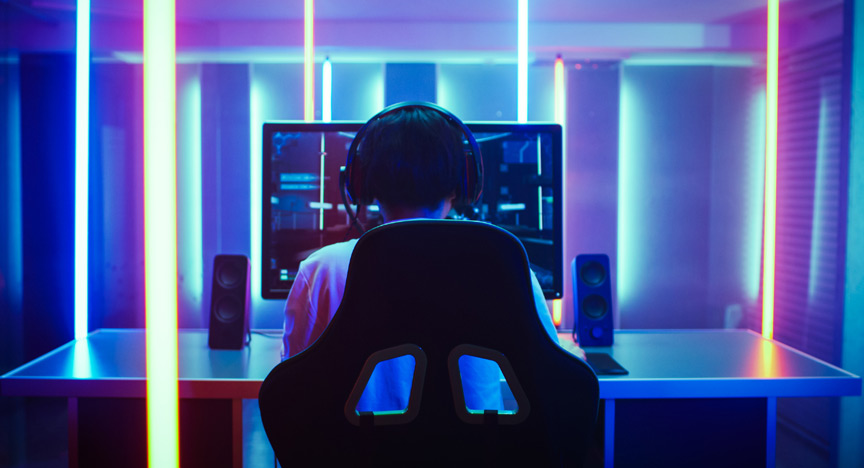
‘Just five more minutes’.... ‘But I can’t save at this point’....
If you’re a parent or a carer of a young person, the chances are you’re familiar with these common excuses for why they need more time in the all-consuming world of online gaming.
While it can be fun - and even healthy in moderation - online gaming becomes a problem when the amount of time your child spends gaming starts to negatively affect day-to-day functioning including managing school work, self-care and social connection.
So, what are the tell-tale signs that your child’s interest in gaming might be something more serious? Ask yourself these questions:
- Are they eating and drinking regularly? When a player is deeply immersed in a game, they can become distracted from awareness of their basic needs. This includes feelings of hunger or dehydration. It’s important to teach your child to stop regularly to care for their body. Preventing hunger and dehydration can also help to prevent a child from having an outburst when the game is switched off.
- How much sleep are they getting? Screens give off a blue light which makes the brain feel more alert. Blue light before bedtime can affect melatonin, which is a hormone in the brain that helps with sleep. When melatonin production is affected, it disrupts the body’s internal clock. Looking at screens before bedtime can also make it difficult to get to sleep and change the sleep cycle. When sleep is affected, it results in sluggishness. It is recommended that screens are turned off at least one hour before bed time to allow time to wind down.
- How social are they? Online gaming leaves users believing they are socially connected to other people, because they can chat to teammates throughout the game. While this is a form of social connection, it lacks important face-to-face social skills such as reading body language. Body posture, tone of voice and facial expressions are all important non-verbal communication skills a young person needs to learn. The best way to combat social isolation is to learn about why your child is playing so frequently, and have more direct and positive interactions with them. Pay attention to how much face-to-face social interaction they are getting in their daily lives.
- Are they falling behind in school work? Sometimes falling behind in school work can be a consequence of gaming addiction. Gaming can also be used to escape for a child that is struggling academically. Set ground rules before your child starts gaming, but more importantly, stick to them. Equip yourself with tools to help you manage your child’s gaming habits. This could mean downloading apps to manage the WIFI at home, educating yourself on safe internet use, and setting consequences if rules are not followed.
- How’s their posture? Too much gaming can cause posture problems, particularly when children play on their phones or tablets. This is because their heads are bent over a screen, which can cause significant headaches, neck and upper back pain. Bending the head over a screen even just an inch can put six times more force on the neck than usual. Research has shown that bent head posture can affect the hormones responsible for feeling happy, and can contribute to depression. Encourage your child to think about their posture when gaming, and to take regular stretch breaks. It’s also important to encourage exercise and time outdoors in the fresh air.
Why are these games so addictive?
- Online multiplayer arena battle can be very visually stimulating. The level of colour and movement within the game keeps the brain alert as it is constantly absorbs new information. This arouses the brain and makes the gamer want to continue exploring.
- They offer intermittent reinforcement, which means players receive rewards for doing something simple, then progress to more challenges which, make it more difficult to receive the award. This keeps players hooked.
- Gaming offers an escape from reality. When a young person has trouble with peers, exam anxiety or bullying, gaming gives them an opportunity to be in charge, be entertained, have virtual interactions with others and experience the highs and lows of achievement and failure in a safe way.
When to seek professional help?
If relationships, work, school, study, or other activities are suffering because of gaming and Internet use, it’s time to seek help. You can contact your GP to obtain a referral to private psychology services, a Headspace centre or Child and Youth Mental Health Service if you have any concerns about their mental health.